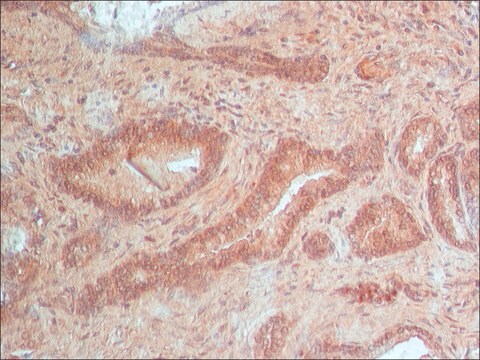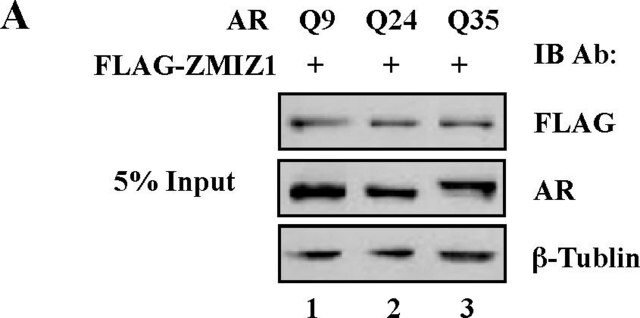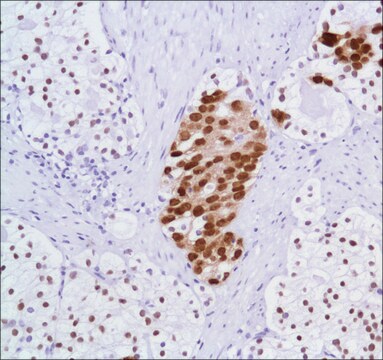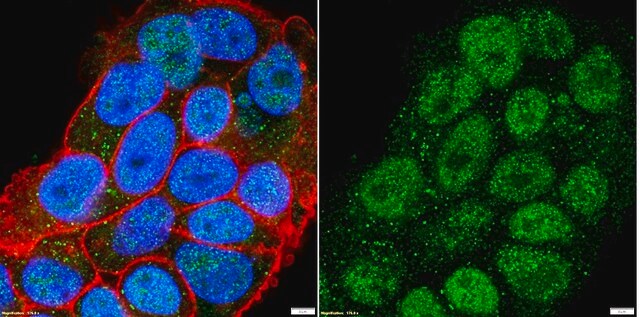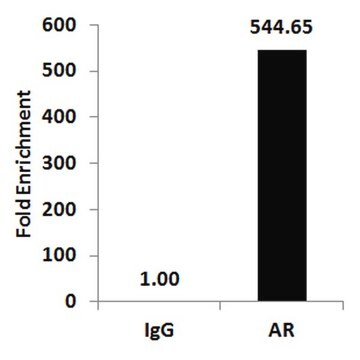06-680-AF647
Anti-Androgen Receptor Antibody, Alexa Fluor™ 647 Conjugate
from rabbit, ALEXA FLUOR™ 647
Synonym(e):
Androgen receptor, Dihydrotestosterone receptor, Nuclear receptor subfamily 3 group C member 4
About This Item
Empfohlene Produkte
Biologische Quelle
rabbit
Qualitätsniveau
Konjugat
ALEXA FLUOR™ 647
Antikörperform
affinity isolated antibody
Antikörper-Produkttyp
primary antibodies
Klon
polyclonal
Speziesreaktivität
rat, human
Speziesreaktivität (Voraussage durch Homologie)
canine (based on 100% sequence homology), bovine (based on 100% sequence homology), mouse (based on 100% sequence homology), horse (based on 100% sequence homology)
Methode(n)
immunocytochemistry: suitable
NCBI-Hinterlegungsnummer
UniProt-Hinterlegungsnummer
Versandbedingung
wet ice
Posttranslationale Modifikation Target
unmodified
Angaben zum Gen
bovine ... Ar(280675)
dog ... Ar(403588)
human ... AR(367)
mouse ... Ar(11835)
rat ... Ar(24208)
Allgemeine Beschreibung
Immunogen
Anwendung
Epigenetik & nukleäre Funktionen
Hormone & Rezeptoren
Qualität
Immunocytochemistry Analysis: A 1:100 dilution of this antibody detected Androgen Receptor in MCF-7 cells.
Zielbeschreibung
Physikalische Form
Lagerung und Haltbarkeit
Sonstige Hinweise
Rechtliche Hinweise
Haftungsausschluss
Sie haben nicht das passende Produkt gefunden?
Probieren Sie unser Produkt-Auswahlhilfe. aus.
Lagerklassenschlüssel
12 - Non Combustible Liquids
WGK
WGK 2
Flammpunkt (°F)
Not applicable
Flammpunkt (°C)
Not applicable
Analysenzertifikate (COA)
Suchen Sie nach Analysenzertifikate (COA), indem Sie die Lot-/Chargennummer des Produkts eingeben. Lot- und Chargennummern sind auf dem Produktetikett hinter den Wörtern ‘Lot’ oder ‘Batch’ (Lot oder Charge) zu finden.
Besitzen Sie dieses Produkt bereits?
In der Dokumentenbibliothek finden Sie die Dokumentation zu den Produkten, die Sie kürzlich erworben haben.
Unser Team von Wissenschaftlern verfügt über Erfahrung in allen Forschungsbereichen einschließlich Life Science, Materialwissenschaften, chemischer Synthese, Chromatographie, Analytik und vielen mehr..
Setzen Sie sich mit dem technischen Dienst in Verbindung.